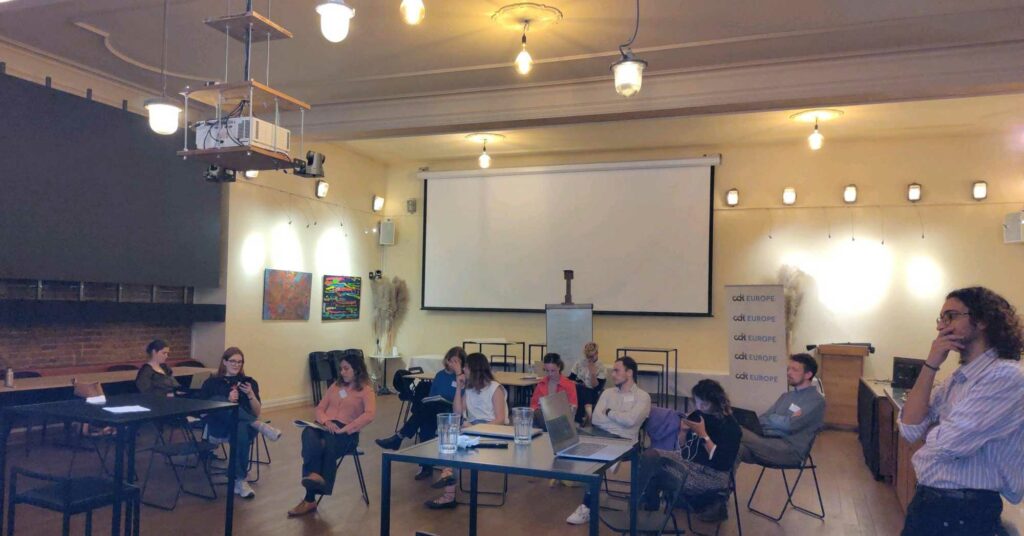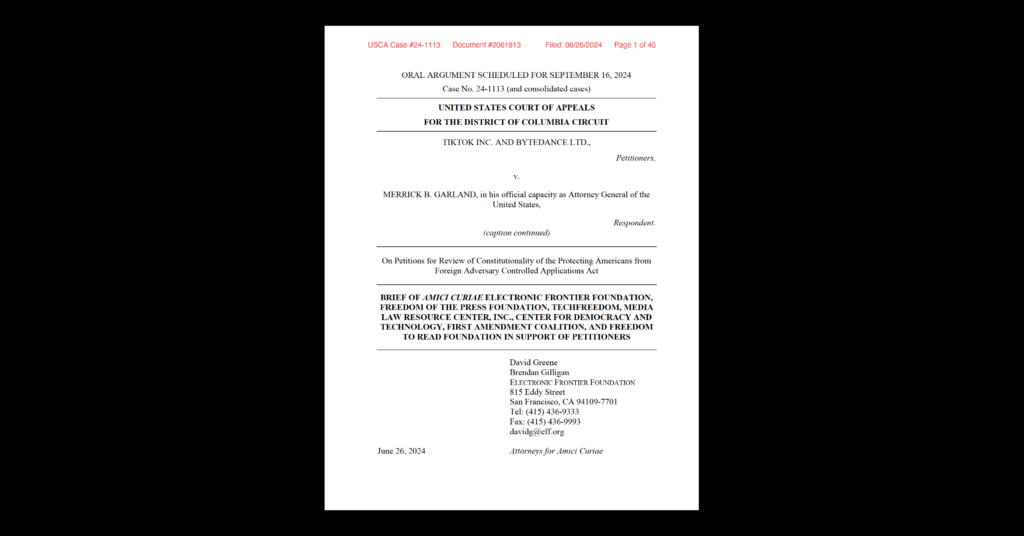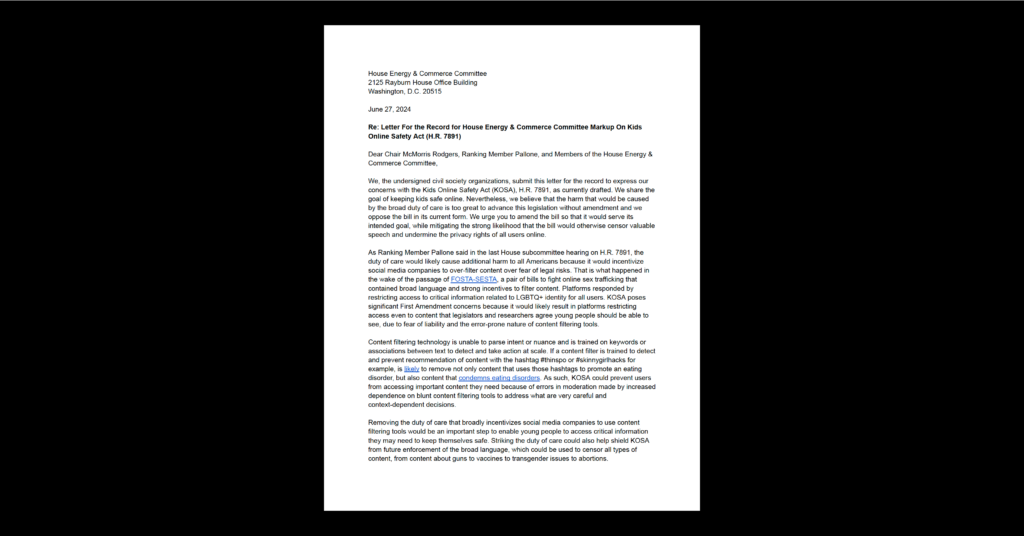CDT Research, European Policy, Free Expression
International Women’s Day: The Need for a Harmonised, Human Rights-Centred EU Legal Framework on Online Gender-Based Violence
Also authored by CDT’s Vânia Reis
Gender Equality and Online Gender-Based Violence: State of Play
Innovation, technological change and education in the digital age to support gender equality and the empowerment of all women and girls is this year’s priority theme at the United Nations’ 67th session of the Committee on the Status of Women, the largest global gathering of decision makers and stakeholders focused on advancing gender equality. This recognition of the increased impact of the digital ecosystem on advancing gender equality is an increasing trend. Universal gender parity and equity, particularly as conceptualised through an intersectional lens, is still far from being a reality; in the European Union, we have witnessed a backsliding in gender equality over the last decade. Limitations remain and the obstacles to equal access, participation, and safety in the online sphere are pervasive. In particular, online gender-based violence (online GBV), which can take many forms, can cause serious harm and a chilling effect on women and non-binary people’s speech, as documented by the European Institute for Gender Equality, with 51% of young women hesitating to engage in online debates after witnessing or directly experiencing online abuse. CDT’s research also highlights the scale of online abuse and harassment of women, specifically, targeted misinformation and disinformation campaigns directed at women politicians.
To address these challenges, multiple jurisdictions have, or are in the process of adopting, legislation related to online GBV, including specific legislation to address the non-consensual sharing of images. Efforts at European Union level have also increased, such as the inclusion of stronger platform due diligence requirements to combat online GBV in the bloc’s flagship online content governance Regulation, the EU Digital Services Act (DSA). How effective and tangibly beneficial these measures will be for victims however remains an open question. What precisely is the EU outlining as its strategy to tackle this violation of the right to freedom from violence?
EU Legislation to Tackle Gender-Based Violence: Wins and Hurdles
The most definitive and targeted of the EU’s efforts to address online GBV is a draft directive on combating violence against women and domestic violence, which includes proposals to criminalise certain forms of ‘cyber violence’ including the non-consensual sharing of images, cyber stalking and cyber harassment. The road to the development of this Directive was long and paved with hurdles, however the start of the legislative process to bring this Directive to life is a significant step forward in establishing a European level legal framework to address GBV more broadly. Although CDT Europe welcomes the commitment of EU legislators to address certain forms of online GBV, the Directive, as drafted, unfortunately fails to align with international human rights standards when it comes to the preservation of free expression. Vague definitions of ‘cyber harassment’ or ‘cyber incitement to violence or hatred’ that don’t meet the principles of legality, proportionality and necessity risk being weaponised against the very individuals this Directive aims to protect. Careless definitions ultimately can end up silencing women’s voices, i.e., imagine advocates for sexual and reproductive health rights in Poland and how their speech could be criminalised. The approach towards criminalisation must be viewed tentatively and through a human rights lens, as broadly defined crimes will result in unjust and disproportionate enforcement. These risks in particular impact historically marginalised groups, who continue to face discrimination such as a disproportionate application of punitive measures and surveillance from law enforcement bodies.
The Directive is not the only tool in the EU arsenal to address online GBV however, as mentioned, the Digital Services Act also includes specific mandatory due diligence obligations – risk assessments – for platforms to annually assess and mitigate the risk of online GBV. The obligations introduced by the DSA are vital to address those forms of online GBV that cause significant harm but that may not rise to the level of illegal conduct. For these obligations to be meaningful however, the DSA risk assessments should in fact be conducted as comprehensive human rights impact assessments, using an intersectional methodology as a basis. Without this gender-sensitive lens, obtaining a comprehensive understanding of how the systemic risks of online GBV manifest will be challenging. For example, gendered disinformation bridges the risk of online GBV with the risk to one’s ability to engage in civic discourse, a risk to their mental and physical health, and a violation of several fundamental rights, all specific systemic risks that will need to be mitigated under the DSA.
Addressing online GBV through legislation requires the adoption of a multi-pronged approach, which should include clear and proportionate legal frameworks that operate in tandem with well-enforced, due diligence obligations for platforms that are subject to concrete accountability mechanisms. The EU must ensure alignment of the Directive with the DSA, which already establishes the process for addressing illegal content and will come into force months (if not years) before the Directive, thereby laying essential groundwork in addressing online GBV in Europe. It’s imperative that these legislations ultimately complement rather than undermine one another, and not result in unintended consequences.
As we mark International Women’s Day 2023, we hope that these efforts to combat online GBV contribute towards a much needed paradigm shift. Lawmakers must recognise that their efforts must be centred on a victims-rights approach by placing the protection of all women’s rights at the very heart of these co-regulatory frameworks. Freedom from violence is a fundamental human right and gender-based violence, in all its forms undermines this right; it is time to assure and protect the voices of all women and gender-diverse people in our digital ecosystem.


